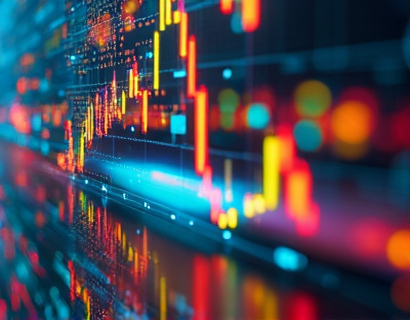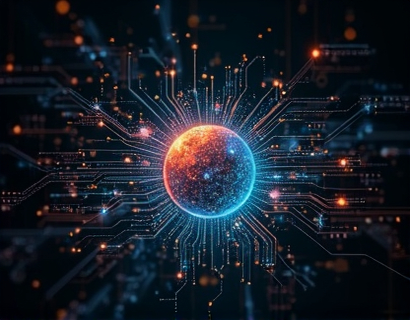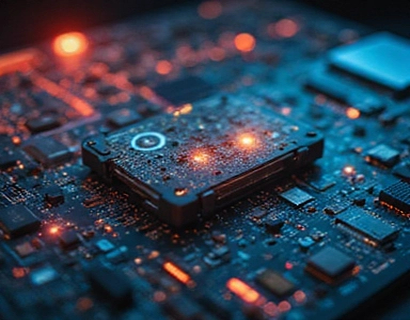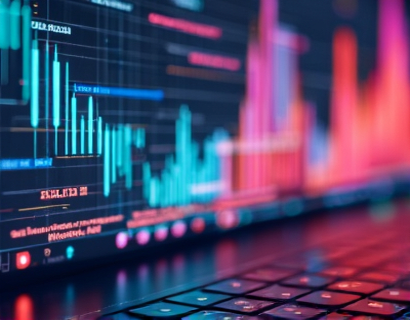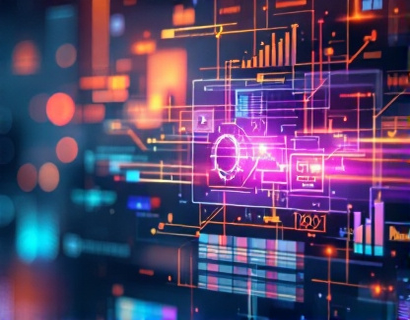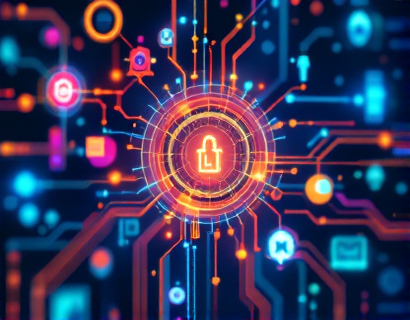AI and Crypto Synergy: Transforming Digital Finance with Intelligent Solutions for the Future
The intersection of artificial intelligence (AI) and cryptocurrency is redefining the landscape of digital finance. This synergy is not just a trend but a transformative force that is reshaping how we interact with financial systems. As technology advances, the integration of AI into the crypto ecosystem is becoming increasingly sophisticated, offering intelligent solutions that enhance security, efficiency, and user experience. This article delves into the profound impact of this fusion, exploring its current applications, future potential, and the broader implications for the FinTech industry.
Understanding the Basics: AI in Cryptocurrency
To grasp the synergy between AI and cryptocurrency, it's essential to understand the fundamental roles each plays in the digital finance space. Cryptocurrency, a decentralized digital currency, operates on blockchain technology, ensuring transparency, security, and immutability. AI, on the other hand, is a branch of computer science that focuses on creating systems capable of performing tasks that typically require human intelligence, such as learning, reasoning, and problem-solving.
When combined, AI and cryptocurrency leverage their unique strengths to create intelligent financial solutions. AI algorithms can analyze vast amounts of data from blockchain transactions, market trends, and user behavior to provide insights and automate processes. This integration enhances the functionality of cryptocurrencies, making them more than just a store of value or a medium of exchange.
Enhancing Security with AI
One of the most significant benefits of AI in the crypto space is its ability to bolster security. Cryptocurrency exchanges and wallets are prime targets for cyberattacks, and traditional security measures often fall short. AI-driven security solutions offer a more robust defense mechanism.
Machine learning algorithms can detect anomalies and patterns indicative of fraudulent activities in real-time. These systems continuously learn from new data, improving their ability to identify and mitigate threats. For instance, AI can monitor transaction patterns and flag suspicious activities, such as unusual login times or large withdrawals, before they result in significant losses. This proactive approach to security is crucial in a landscape where cyber threats are constantly evolving.
Improving Market Efficiency
AI also plays a pivotal role in enhancing market efficiency within the cryptocurrency ecosystem. Traditional financial markets rely on human analysts to interpret data and make informed decisions. However, the sheer volume of data in the crypto market makes this approach impractical and often inefficient.
AI algorithms can process and analyze vast datasets at speeds unattainable by humans. This capability allows for real-time market analysis, predictive modeling, and automated trading. By leveraging natural language processing (NLP), AI can even analyze news articles, social media posts, and other textual data to gauge market sentiment and make more accurate predictions. This level of insight empowers traders and investors to make more informed decisions, reducing uncertainty and improving market efficiency.
Personalized User Experiences
The integration of AI in cryptocurrency extends beyond security and market analysis to personalizing user experiences. User engagement is critical for the adoption and success of crypto platforms. AI-driven recommendation systems can tailor content, offers, and services to individual users based on their preferences and behavior.
For example, a crypto exchange can use AI to analyze a user's trading history and suggest suitable assets or trading strategies. Personalized news feeds and educational content can also enhance user knowledge and engagement. This level of personalization not only improves user satisfaction but also fosters a more loyal and active community.
Smart Contracts and AI
Smart contracts, self-executing contracts with the terms directly written into code, are a cornerstone of blockchain technology. AI can further enhance the capabilities of smart contracts by adding layers of intelligence and adaptability.
AI can be used to create dynamic smart contracts that adjust their parameters based on real-time data. For instance, a smart contract for insurance can use AI to assess risk factors such as weather conditions, traffic patterns, or even social media sentiment to determine premium rates and payout conditions. This flexibility makes smart contracts more versatile and applicable to a wider range of use cases.
Decentralized Finance (DeFi) and AI
Decentralized Finance (DeFi) is a rapidly growing sector within the crypto ecosystem, offering decentralized alternatives to traditional financial services. AI is revolutionizing DeFi by introducing intelligent protocols and tools that enhance liquidity, risk management, and user experience.
AI-driven liquidity pools can optimize asset allocation and improve yield generation for users. By analyzing market conditions and user behavior, these pools can dynamically adjust their composition to maximize returns while minimizing risk. Additionally, AI can help in identifying and mitigating systemic risks in DeFi protocols, ensuring a more stable and trustworthy environment.
Challenges and Considerations
While the synergy between AI and cryptocurrency offers numerous benefits, it also presents challenges that need to be addressed. One of the primary concerns is the regulatory landscape. The use of AI in finance is subject to stringent regulations, and the decentralized nature of cryptocurrency adds complexity to compliance.
Another challenge is the ethical use of AI. Ensuring that AI systems are transparent, fair, and free from bias is crucial. The crypto community must prioritize ethical AI practices to maintain trust and credibility. Furthermore, the technical expertise required to develop and maintain AI-driven solutions can be a barrier for some players in the market.
Future Prospects
Looking ahead, the integration of AI and cryptocurrency is poised to become even more sophisticated. Advancements in machine learning, quantum computing, and blockchain technology will continue to drive innovation in the FinTech sector.
One exciting area is the development of AI-powered decentralized autonomous organizations (DAOs). These organizations can leverage AI to make collective decision-making more efficient and democratic. AI can analyze member preferences, propose solutions, and execute decisions autonomously, reducing the need for centralized control.
Another promising development is the use of AI in cross-chain interoperability. As the crypto ecosystem grows, the ability to seamlessly transfer assets and data across different blockchain networks becomes increasingly important. AI can facilitate this process by intelligently managing and optimizing cross-chain transactions, enhancing the overall functionality and utility of the ecosystem.
Conclusion
The synergy between AI and cryptocurrency is transforming digital finance in profound ways. From enhancing security and market efficiency to personalizing user experiences and revolutionizing DeFi, the potential applications are vast and varied. As technology continues to evolve, the intersection of AI and cryptocurrency will undoubtedly play a pivotal role in shaping the future of FinTech. For tech enthusiasts and innovators, understanding this synergy is essential for navigating and thriving in the next era of financial innovation.




